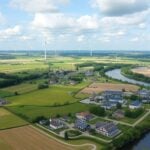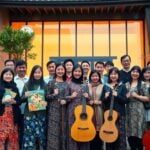A grant proposal serves as a formal request for funding, typically directed towards government agencies, foundations, or other organizations that provide financial support for specific projects or initiatives. The primary purpose of a grant proposal is to articulate a clear vision of what you intend to achieve, how you plan to accomplish it, and why it is essential. It is not merely a request for money; rather, it is an opportunity to persuade funders that your project aligns with their mission and goals.
Understanding this fundamental purpose is crucial for crafting a proposal that resonates with potential funders. Moreover, a well-structured grant proposal can serve as a roadmap for your project. It forces you to clarify your objectives, identify the resources you need, and outline the steps necessary to achieve your goals.
This clarity not only helps in securing funding but also ensures that you have a solid plan in place for implementation. By recognizing the dual purpose of a grant proposal—as both a funding request and a project blueprint—you can approach the writing process with a strategic mindset that enhances your chances of success.
Identifying the Community Needs and Goals
Understanding Community Needs
This involves engaging with community members, stakeholders, and relevant organizations to gather insights into the challenges they face. By understanding these needs, you can tailor your project to provide meaningful solutions that resonate with both the community and potential funders.
Defining Clear and Measurable Goals
For instance, if you are proposing a youth mentorship program, conducting surveys or focus groups can help you identify specific issues such as high dropout rates or lack of access to extracurricular activities. Once you have identified the community needs, it is equally important to define clear and measurable goals for your project. These goals should be specific, achievable, relevant, and time-bound (SMART).
Creating a Compelling Case for Funding
For example, instead of stating a vague goal like “improve education,” you might specify “increase high school graduation rates by 15% over three years.” This level of specificity not only strengthens your proposal but also provides a clear framework for evaluating the success of your project once it is implemented. By aligning your goals with the identified community needs, you create a compelling case for why your project deserves funding.
Researching Potential Funding Sources
Finding the right funding sources is a critical step in the grant proposal process. Not all funders are created equal; each has its own priorities, guidelines, and application processes. Start by compiling a list of potential funding organizations that align with your project’s mission and objectives.
This could include government agencies, private foundations, corporate sponsors, or even crowdfunding platforms. Websites like Grants.gov and Foundation Center can be invaluable resources for identifying potential funders. Once you have identified potential funding sources, take the time to thoroughly research each one.
Review their funding history, priorities, and any specific requirements they may have for grant proposals. Understanding what funders are looking for can help you tailor your proposal to meet their expectations. For example, if a foundation prioritizes environmental sustainability, highlighting how your project contributes to this goal will make your proposal more appealing.
Additionally, consider reaching out to previous grantees or attending informational sessions hosted by funders to gain insights into their decision-making processes.
Crafting a Compelling Narrative and Project Description
The narrative of your grant proposal is where you have the opportunity to tell your story and connect emotionally with potential funders. A compelling narrative should clearly articulate the problem you are addressing, why it matters, and how your project will make a difference. Use data and anecdotes to illustrate the urgency of the issue and the impact of your proposed solution.
For instance, if you are seeking funding for a mental health initiative, including statistics on local mental health challenges alongside personal stories from individuals who have benefited from similar programs can create a powerful narrative. In addition to storytelling, your project description should provide a detailed overview of how you plan to implement your project. This includes outlining specific activities, timelines, and expected outcomes.
Be sure to highlight any innovative approaches or best practices that set your project apart from others. Funders are often looking for projects that not only address pressing needs but also demonstrate creativity and effectiveness. By combining a compelling narrative with a well-structured project description, you can create a persuasive proposal that captures the attention of reviewers.
Developing a Realistic Budget and Timeline
A well-prepared budget is an essential component of any grant proposal. It should provide a clear breakdown of all anticipated expenses related to your project, including personnel costs, materials, equipment, and overhead expenses. When developing your budget, be realistic and transparent about costs; funders appreciate honesty and thoroughness.
Additionally, consider including in-kind contributions or matching funds from other sources to demonstrate community support for your project. Alongside the budget, a detailed timeline is crucial for illustrating how you plan to execute your project within the proposed funding period. This timeline should outline key milestones and deliverables, providing funders with confidence in your ability to manage the project effectively.
For example, if your project involves multiple phases—such as planning, implementation, and evaluation—be sure to specify when each phase will occur and what outcomes are expected at each stage. A well-organized budget and timeline not only enhance the credibility of your proposal but also provide a clear framework for accountability.
Building a Strong Partnership and Support Network
Identifying Potential Partners
Consider reaching out to local nonprofits, educational institutions, or community groups that share similar goals or target populations. These partnerships can help diversify funding sources and increase the overall impact of your project.
Cultivating a Support Network
In addition to formal partnerships, it’s beneficial to cultivate a support network throughout the grant application process. Engage with mentors or colleagues who have experience in grant writing or project implementation; their insights can be invaluable in refining your proposal.
Community Involvement and Project Success
Furthermore, consider involving community members in the planning process to ensure that their voices are heard and their needs are addressed. By fostering collaboration and building a robust support network, you not only strengthen your proposal but also enhance the likelihood of successful project implementation.
Reviewing and Editing the Grant Proposal
Once you have drafted your grant proposal, it is essential to take the time to review and edit it thoroughly before submission. A well-polished proposal reflects professionalism and attention to detail—qualities that funders value highly. Start by revisiting each section of your proposal to ensure clarity and coherence; make sure that all components align with one another and support your overall narrative.
Consider seeking feedback from colleagues or mentors who can provide an objective perspective on your proposal. They may identify areas that need clarification or suggest improvements that enhance its overall quality. Additionally, pay close attention to formatting guidelines provided by the funding organization; adhering to these requirements demonstrates respect for their application process.
By investing time in reviewing and editing your proposal, you increase its chances of making a positive impression on reviewers.
Submitting the Grant Proposal and Following Up
After finalizing your grant proposal, it’s time for submission. Ensure that you follow all submission guidelines meticulously—this includes adhering to deadlines, formatting requirements, and any specific documentation requested by the funder. Submitting on time is crucial; late applications are often disqualified without consideration.
Once submitted, don’t forget about follow-up communication. Many funders appreciate hearing from applicants after submission; it shows enthusiasm and commitment to the project. Consider sending a brief email thanking them for their consideration and expressing eagerness for their feedback.
If awarded funding, be prepared to maintain open lines of communication throughout the project’s duration; this fosters transparency and builds trust between you and the funder. In conclusion, navigating the world of grants requires careful planning, research, and execution. By understanding the purpose of grant proposals, identifying community needs, researching funding sources, crafting compelling narratives, developing realistic budgets and timelines, building partnerships, reviewing proposals thoroughly, and following up after submission, individuals can significantly enhance their chances of securing funding for their projects.
With dedication and strategic effort, turning ideas into reality through grants becomes an achievable goal.


























